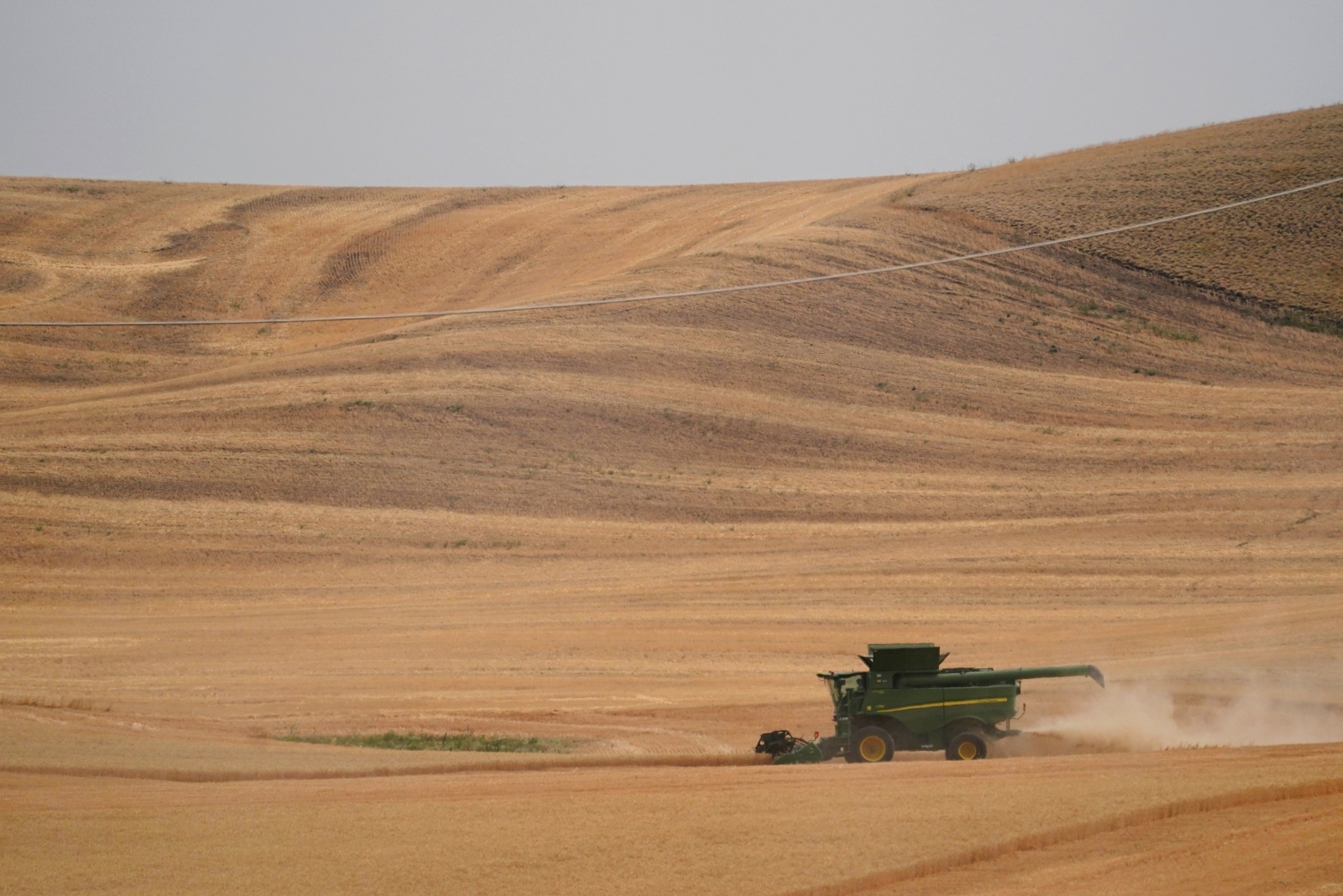

Published on: 10/16/2025
This news was posted by Oregon Today News
Description
Oregon wheat farmers are in a tough spot.
They’ve dealt with low crop prices and high fertilizer and equipment costs for the better part of two years. And uncertain U.S. trade policies are creating a challenging market for growers dependent on overseas buyers.
Many are holding on to their grain for now rather than sellout at a loss, as they wait to see if President Donald Trump delivers on a $15 billion bailout to commodity farmers hit by the administration’s ongoing trade disputes.
But growers say they want reliable markets, not a check from the federal government.

Oregon wheat is one of the state’s biggest contributions to the global food market. Over 90% of the wheat grown in the state is exported to mostly Asian countries like the Philippines, South Korea and Indonesia. Much of the wheat produced in the Pacific Northwest is ideal for noodles, dumplings and other soft pastries.
In 2024, Oregon wheat growers planted 750,000 acres of wheat, yielding 1.3 million metric tons — valued at $276 million, according to data from the U.S. Department of Agriculture.
Over the last year, though, prices have kept stubbornly low at a little over $5 a bushel, down from a peak of $11 a bushel in 2022. And farmers are feeling it.
For some, the cost of producing wheat right now is higher than what buyers are offering to pay for the crop.
“Fortunately, my son and I run an operation that has very low overhead, and we’re also fortunate in the fact that we own about half of the land that we farm,” said Matt Wood, a sixth-generation farmer in Helix, Oregon. “But given that, we are still just barely in the black. I mean just barely.”
Oregon farmers wrap up local food deliveries after federal cuts
Contributing to that is a global glut of wheat and high prices for inputs like fertilizer, seeds and equipment. A “pseudo-hostile environment” with overseas buyers isn’t helping, either, Wood said.
“It’s a double whammy because right now the tariffs are affecting the product that we grow and making them either less desirable or more expensive or both to foreign countries,” he said. “And then at the same time, a lot of the fertilizer is imported from foreign countries, and so it’s become more expensive so that’s the last thing you need.”
The price is so low that many growers are choosing to keep their grain in off-farm storage, if they can afford it, said Amanda Hoey, the executive director of the Oregon Wheat Growers League, a trade association.
“It gives [the farmer] flexibility for being able to market at different times of year,” she said. “The price is so low that…there’s not a lot of incentive to sell unless you have to pay those bills or think it’s not going to turn around within a significant period of time.”
‘We want markets. We don’t want payments’
It’s likely much of the Trump administration’s possible bailout would be directed toward soybean farmers in the Midwest, who’ve lost access to markets due to an ongoing trade war with China.
Trump has said he would use tax revenue from tariffs to provide relief for commodity farmers. It’s unclear how exactly the administration will pay for it, plus the federal government shutdown could dampen the administration’s ability to move forward on the plan, at least for now.
Oregon agriculture leaders, farmers brace for retaliatory tariffs
Hoey said she’d expect some bailout money to make its way to other commodity farmers, however. There’s just not a lot of information right now, she said.
“I would say that we are similar to other commodities in having those low market prices that are not sustainable for farm operations,” Hoey said. “Soy certainly has a heavier reliance on one market source within China much more than we would have reliance on one market source. But we’re all impacted by those [trade policy] decisions.”

And though she’d prefer farmers have access to open markets, Hoey said some farmers might need subsidies to stay afloat.
“We want markets, we don’t want payments, but it’s a situation right now where in order to sustain [the industry], payments are necessary,” she said.
Wood said subsidies help some, but not in the long run. And, he said, he’s already seeing the impact worsening economic conditions will have.
He said he’s already seen half a dozen of his neighbors decide to sell their land this year and pull the plug on farming.
“There’s going to be a lot of farmers doing something different in five years,” he said. “I will guarantee you that because they’re not going to be able to operate in this climate for more than another season or two.”
News Source : https://www.opb.org/article/2025/10/16/oregon-wheat-farmers-bailout/
Other Related News
10/16/2025
States who received funding under EPAs project aimed to expand solar energy for low-income...
10/16/2025
Both videos were taken Tuesday morning by separate people one in Northwest Portland and th...
10/16/2025
A program out of Columbia Gorge Community College is helping replant native seeds in Tygh ...
10/16/2025
Were accepting applications for Entry-Level Police Officer This is more than a career sta...
10/16/2025











